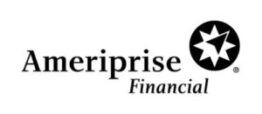
The United States Securities and Exchange Commission announced that Wells Fargo Securities LLC consented to an $11.2 million fine in connection with the sale of collateralized debt obligations (CDOs) in late 2006 and early 2007.
The SEC found that Wachovia Capital Markets violated the securities laws by fraudulently charging undisclosed and excessive markups in the sale of CDOs to the Zuni Indian Tribe and to an individual investor.
As part of Wachovia’s fraud, and as set forth in the SEC’s Order, Wachovia Capital Markets marked down $5.5 million deal to 52.7 cents on the dollar after it was unable to find a buyer, but then sold it to the Zuni Indian Tribe and the individual investor for 90 and 95 cents on the dollar, or over 70 percent higher
Also Wachovia misrepresented to investors that another CDO, which it acquired from affiliates sold these assets to an unsuspecting investor at stale prices in order to avoid losses on its own books.
Wells Fargo Securities & Wachovia Capital Markets Pay Fines
Without admitting or denying the findings, Wells Fargo Securities consented to the entry of an administrative order directing that it cease and desist from committing or causing any violations and any future violations of Section 17(a)(2) and (3) of the Securities Act of 1933. Wells Fargo agreed to pay disgorgement of $6.75 million and a penalty of $4.45 million. A total of $7.4 million of those amounts will be returned to investors pursuant to the Fair Fund provisions of Section 308(a) of the Sarbanes-Oxley Act of 2002.
Residential Mortgage-Backed Securities (RMBS) are a complex, highly-leveraged structured products backed by residential mortgages.
Investors receive payments out of the interest and principal payments from the underlying mortgages.
The AAA-rated tranches are at the top of the waterfall with the first right to receive principal and interest if there is a shortfall. The equity tranche is at the bottom of the capital structure and the most risky, but has the potential for the highest payout. Equity investors are generally the first to experience losses associated with a deterioration of the underlying mortgage loan portfolio
Grand Avenue II was a $1.5 billion CDO backed by a portfolio of RMBS. The deal closed on October 26, 2006. At closing, Wachovia Capital Markets had been unable to sell $5.5 million of preferred shares, or equity, in the transaction.
Wachovia Capital Markets retained those securities in its CDO syndicate desk’s inventory and marked them at 52.7 on the company’s books and records for purposes of financial reporting in accordance with generally accepted accounting principles (GAAP) (preferred share prices referenced herein are represented as percentages of par).
GAAP required that Wachovia Capital Markets value the securities at an estimate of the price at which they could be sold in the market in a reasonably short period of time.
Wachovia sold the securities in February and March 2007 to the Zuni Indian Tribe and an individual investor. Both were customers of a Wachovia Securities registered representative located in El Paso, Texas.
The Zuni Indian Tribe and the individual investor paid 90 and 95 as detailed below. Unbeknownst to them, this represented a markup of over 70 percent above the price at which the preferred shares were marked on Wachovia Capital Markets’ books, which was 52.7. By the end of 2007, the RMBS held (or referenced) by Grand Avenue II had been downgraded substantially and the transaction went into default as of February 1, 2008.
The mechanics by which the Grand Avenue II preferred shares were sold were as follows. On or about February 13, 2007, Wachovia Capital Markets sold $2 million of the Grand Avenue II preferred shares to Wachovia Securities at 90.5, and then on February 14, 2007, Wachovia Securities sold those securities to the Zuni Indian Tribe at 95. On or about March 12, 2007, Wachovia Capital Markets sold another $2 million of the Grand Avenue II preferred shares to Wachovia Securities at 85.5.
On March 15, 2007, Wachovia Securities sold $890,000 of these securities to the Zuni Indian Tribe and $1,110,000 to the individual investor at 90. On or about March 16, 2007, Wachovia Capital Markets sold $1.5 million of the Grand Avenue II preferred shares to Wachovia Securities at 85.5, and then on March 20, 2007, Wachovia Securities sold those securities to the individual investor at 90.
The SEC found that Wachovia Capital Markets charged undisclosed excessive markups in the sale of the Grand Avenue II preferred shares to Wachovia Securities for subsequent sale to the Zuni Indian Tribe and an individual investor. These investors paid 90 and 95. Unbeknownst to the investors or Wachovia Securities, this represented a markup of over 70 percent above Wachovia Capital Markets’ internal mark on the Grand Avenue II preferred shares, which was 52.7. In so doing, Wachovia Capital Markets violated Sections 17(a)(2) and (3) of the Securities Act under the shingle theory because it knew or should have known that the prices it charged were excessive.
As of February 2007, Wachovia Capital Markets was in the process of warehousing collateral for two RMBS CDOs, Longshore 3 and another proposed CDO (the “Transferor Warehouse”). Longshore 3 was a $1.3 billion CDO backed by a portfolio of RMBS and other asset-backed securities. The deal closed on April 26, 2007. Wachovia Capital Markets decided not to proceed with the other CDO due to market conditions.
The SEC also found that Wachovia Capital Markets represented in the Offering Circular for Longshore 3 that collateral acquired from affiliates of SAI would be acquired in transactions representative of transactions entered into “on an arm’s-length basis” and “at fair market prices” (the “Affiliate Transaction Disclosures”).
Those representations were false and misleading because assets transferred from the Transferor Warehouse were priced approximately $4.6 million above their then-current market prices as determined by Wachovia Capital Markets’ internal marks on the assets.
As part of their settlement with the SEC, Wells Fargo agreed to pay disgorgement of $6.75 million and a civil money penalty in the amount of $4.45 million.
Wells Fargo also agreed to pay $1.319 million to the Zuni Indian Tribe and make a $1.064 million payment to the individual investor who purchased the preferred shares in Grand Avenue II along with $5.017 million in payment(s) to and for the benefit of the investors acquiring Longshore 3 securities together with a payment of $3.8 million to the Securities and Exchange Commission.
Guiliano Law Group
The practice of Nicholas J. Guiliano, Esq., and The Guiliano Law Group, P.C., is limited to the representation of investors in claims for fraud in connection with the sale of securities, the sale or recommendation of excessively risky or unsuitable securities, breach of fiduciary duty, and the failure to supervise. We accept representation on a contingent fee basis, meaning there is no cost to unless we make a recovery for you, and there is never any charge for a consultation or an evaluation of your claim. For more information contact us at (877) SEC-ATTY.








